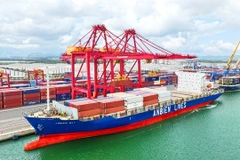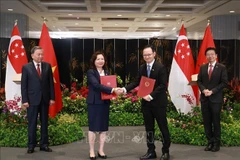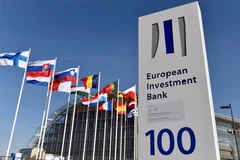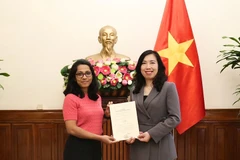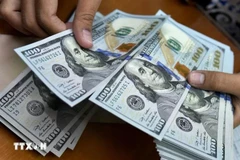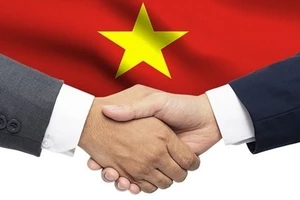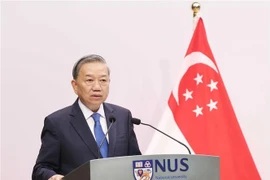
Hanoi (VNA) - At the seventh session of the 15th National Assembly, deputies voted to pass the UK’s accession protocol to the CPTPP.
According to the agreement’s provisions, once two more CPTPP members complete the ratification process, the UK’s accession protocol to the agreement will officially take effect on October 16, 2024.
According to experts, the UK’s participation in the agreement not only helps businesses have more opportunities to expand export markets, but also creates momentums to fuel economic growth, and raises Vietnam’s position in the international arena.
Ngo Chung Khanh, Deputy Director General of the Multilateral Trade Policy Department under the Ministry of Industry and Trade, said the UK is an important partner of Vietnam. “Thus, its accession to the CPTPP will expand markets for Vietnam.”
During the negotiations, Vietnam and the UK agreed to open more market access for Vietnam in addition to existing bilateral free trade agreements, he said.
“This is a highlight of the CPTPP as many large economies, such as China, are interested in joining, demonstrating the growing influence of the agreement, which will certainly create new momentums for businesses and investors to focus more on CPTPP members, especially Vietnam.”
For Vietnam’s seafood industry, the CPTPP has created a strong push for exports to this market thanks to preferential tariffs in trade with member countries.
Statistics from the Vietnam Association of Seafood Exporters and Producers showed that seafood exports to the CPTPP markets accounted for 25% of Vietnam’s total seafood export value in 2018 but rose to nearly 27% in 2023. The CPTPP markets are the second-fastest growing, with the Chinese market showing top growth.

In recent years, two-way trade between Vietnam and the UK has enjoyed stable growth, with an average trade turnover of 6.56 billion USD in 2020-2023.
Vietnam’s main export commodities include garment-textile, footwear, electronic products and components, farm produce such as coffee, cashew nuts, and seafood. Meanwhile, Vietnam mainly imports from the UK machinery, mechanical equipment and tools, pharmaceuticals, and chemicals.
Currently, Vietnam has achieved its objective of securing the UK’s commitment to open its market at a high level, aligning with the standards set by the CPTPP.
Specifically, the UK has committed to eliminating tariffs on 94.4% of tariff lines for Vietnam as soon as the CPTPP takes effect.
A variety of Vietnamese agricultural products, including rice, seafood and tapioca are subject to this preferential treatment, which is even better than in the UK’s commitment in the UK-Vietnam Free Trade Agreement (UKVFTA).
“Another highlight is that in addition to joining the CPTPP, the UK has officially recognised Vietnam as a market economy. This is beneficial for Vietnam, especially in trade defense investigations, particularly anti-dumping cases, according to Minister of Industry and Trade Nguyen Hong Dien.
With this recognition, Vietnamese exports will no longer be subject to discriminatory treatment. Instead, they will enjoy more reasonable anti-dumping tax rates compared to the current framework, he said.
The CPTPP is a free trade agreement in force between 11 countries, including Canada, Australia, Brunei, Chile, Japan, Malaysia, Mexico, New Zealand, Peru, Singapore, and Vietnam.
The trade deal came into being on December 30, 2018, after the six initial countries - Canada, Australia, Japan, Mexico, New Zealand, and Singapore - ratified the agreement. The trade deal took effect in Vietnam on January 1, 2019./.





